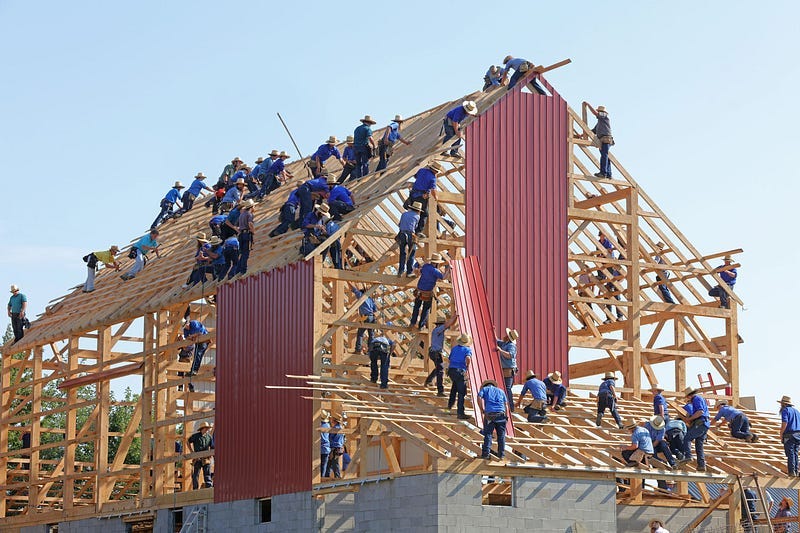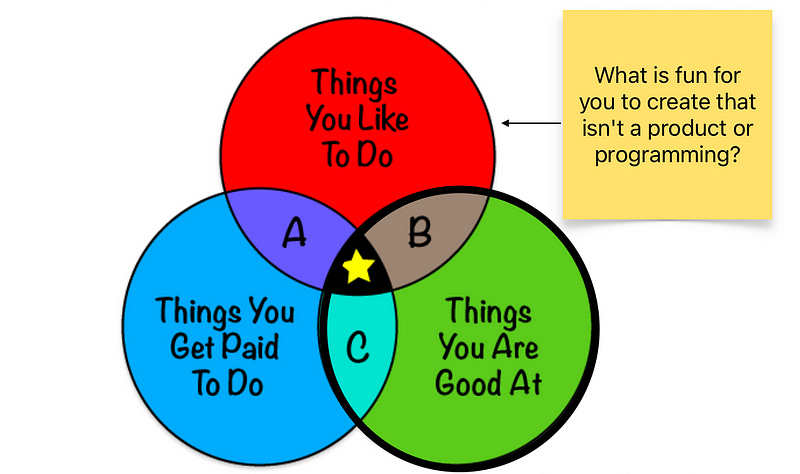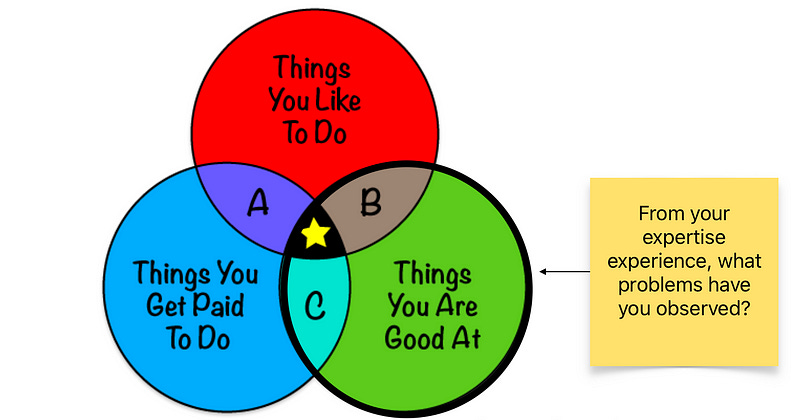I have been struggling to build a project that I am passionate about. My main motivation for working on this project is to improve my skills for a job search and practice building things without a structured curriculum. My plan for the next two months is to spend 70% of my time building and 30% of my time doing a job search. However, after many conversations, I have come to realize that this approach is essentially a practice of job crafting.
My main problem with rejecting all ideas
My biggest problem is all the resistance in my mind. I’m not interested in this and this and this. This looks too hard too. Yes, I can do this one but I don’t feel like committing it. This isn’t helpful for my career. Even after I brainstormed with my best friend and generated an idea we liked, things just fell off. I don’t want to do anything. Besides, I find passion in nothing.

To solve this strong resistance in my brain, I asked plenty of people the following questions. What are you building recently? How do you come up with project ideas? How do you persist with your project when it encounters barriers?
Most people don’t give me a helpful answer might be because most people around me have a life centered on external motivation structure, such as a job, a school deadline, etc., but not on building things and having a habit of building. But here are two conversations that inspired me. One is from my Meta friends who built things regularly in a hackerspace, and the other is from a school alumnus who constantly pushes products and startups.
Building as a mindset, not a product
“I don’t know what to work on. How did you build an AI voice in two days?” I asked my Meta friend.
“Is there anything you want to work on? Like A-N-Y-T-H-I-N-G? “ she asked.
“Anything. It doesn’t need to be coding.”
I relieved myself from the normative pressure of doing “useful” things. Her mindset on building and making isn’t limited to programming or product. For instance, she painted her jean jacket and built an entire chess set with ceramics. I don’t need to do anything serious! I can do something that is stupid but fun, and every idea I implement in daily life can be a part of my building. I started to think of building as a mindset, rather than a product or a project. I started to rethink different dimensions of my life, building a startup-style living environment, building a future, building a community, etc. For instance, in my last post, My Conflicting Dual Visions, I contrast my thoughts on building my home and my future.
My takeaway from our conversation is that I need to allow myself to think deeply about what I enjoy, without being constrained by external factors such as job search stress and upskilling. While these constraints are necessary, it’s better to start with a builder, creative, and fun mindset first, rather than focusing solely on finding a project-career fit.
Building to solve problems, not create solutions
When I think of building, my mind is blocked by thinking of great solutions I really want to work on, and I find nothing interesting. But today, my startup friend taught me to look at it from a problem-solving lens.
“Ideation is bullshit. I did it when applying for YC. We sat for two hours daily to ideate, but we still end up with something we find cool without specific strong reasons,” he said.
“Then how do you come up with so many ideas you want to work on?” I asked.
“Observation. I would start with what I knew the most and think about how it should look rather than how it is now.”
He continued, “For instance, all the data from different warehouses now requires a middleman to store and gather for companies. It made sense because using data was a new concept, but it doesn’t make sense anymore because everyone will be using data, and companies should have more direct access to gather and pay less for it.”
I find more comfort in thinking from his perspective than finding a passion project because I’m marrying to a problem, not a solution. Even if my grand solution fails, the problem will still exist regardless, so the solution is just another hypothesis that fails. Best of all, I can start with something I observe daily without doing something glamorous. As a person obsessed with problem-solving, I realized I am more like a consultant than a construction worker. My imagination of hacker building style doesn’t suit my nature.
My takeaway is to start with things that I am good at. For one to be good at something, one must be immersed in an environment for a period of time. Hence, they will have the potential to identify problems that most people cannot see. Additionally, since they have personal experience related to the problem, it is easier to contextualize and feel connected to the problem, which allows them to brainstorm solutions more effectively. With this in mind, I can now consider taking on freelance projects or finding practical data project problems in my school as potential areas where I can apply my skills. There are indeed many problems in my life that I want to change.
Overall, I find that building a project is similar to job crafting. Both require you to come up with the plan yourself, balance your interests and abilities, and consider how to persist in it. However, crafting a job is much more difficult than finding a job, where everything you need to do is already laid out in the job description. As for the last part of the dream job Venn diagram — money — I haven’t given it much thought, but I will continue to share my thoughts on it as I go through this journey.
This is the 10th post from my 30-day writing challenges. I was inspired by Tung Nguyen, a friend who is a famous blogger. He overcame the fear of creation through mass-producing blogs and eventually found his own niche audiences.



